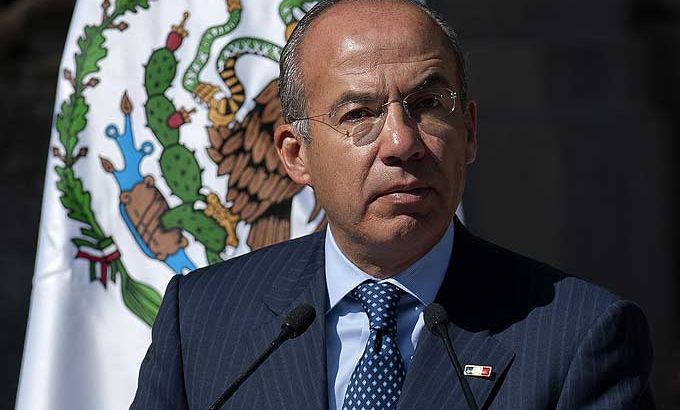Latin American states seek ‘drug war’ review
Mexico, Belize, Honduras and Costa Rica leaders call for study of impact of vote by two US states to legalise marijuana.

A group of Latin American leaders have called for a review of anti-drug strategies, after two US states voted to legalise marijuana.
The leaders of Mexico, Belize, Honduras and Costa Rica said in a declaration on Monday that the decisions in Colorado and Washington would have important implications for efforts to end drug smuggling, offering the first government reaction from a region increasingly frustrated with the US-backed “war on drugs”.
Mexican President Felipe Calderon said, after a meeting with Honduran President Porfirio Lobo, Costa Rican President Laura Chinchilla and Belize Prime Minister Dean Barrow that it has become necessary to “analyse the implications for public policy and health in our nations” and that marijuana legalisation by US states is “a paradigm change on the part of those entities in respect to the current international system”.
The leaders said they were considering weakening their governments’ efforts against marijuana smuggling, but that the the votes last week in Colorado and Washington would make enforcement of marijuana bans more difficult.
They called for the Organisation of American States to study the impact of the vote to legalise marijuana and said the UN General Assembly should hold a special session on the prohibition of drugs by 2015 at the latest.
Monday’s statement by the four leaders “is an important indicator of the desire to engage in a more robust discussion of policy”, said Eric Olson, associate director of the Mexico Institute at the Woodrow Wilson International Centre for Scholars in Washington.
Mexico is one of the primary suppliers of marijuana to the US, while Honduras and Belize are important stops on the northward passage of cocaine from South America.
Commitment complicated
Tens of thousands of people have been killed over the last six years during a militarised government campaign against the country’s drug cartels.
However, Enrique Pena Nieto, Mexico’s president-elect, has promised to shift the focus to preventing violence against ordinary citizens, although he says he intends to keep battling cartels and is opposed to drug legalisation.
Luis Videgaray, head of Pena Nieto’s transition team, told Radio Formula on Wednesday that the votes in the two states complicated his country’s commitment to stopping the growing and smuggling of marijuana.
“Obviously we can’t handle a product that is illegal in Mexico, trying to stop its transfer to the United States, when in the United States, at least in part of the United States, it now has a different status,” he said.
Costa Rica is experiencing increasing use of its territory by drug traffickers.
Guatemala’s president has advocated the international legalisation of drugs.
The call by the four presidents was welcomed by marijuana activists in the US. Forcing international review of drug policies was a stated goal of the campaigns for legalisation in Colorado and Washington.
Dan Riffle, an analyst and lobbying for the Marijuana Policy Project, a Washington DC-based advocacy group that largely financed the two campaigns, said: “Marijuana prohibition in this country has been detrimental, but it’s been absolutely catastrophic to our southern neighbours.”